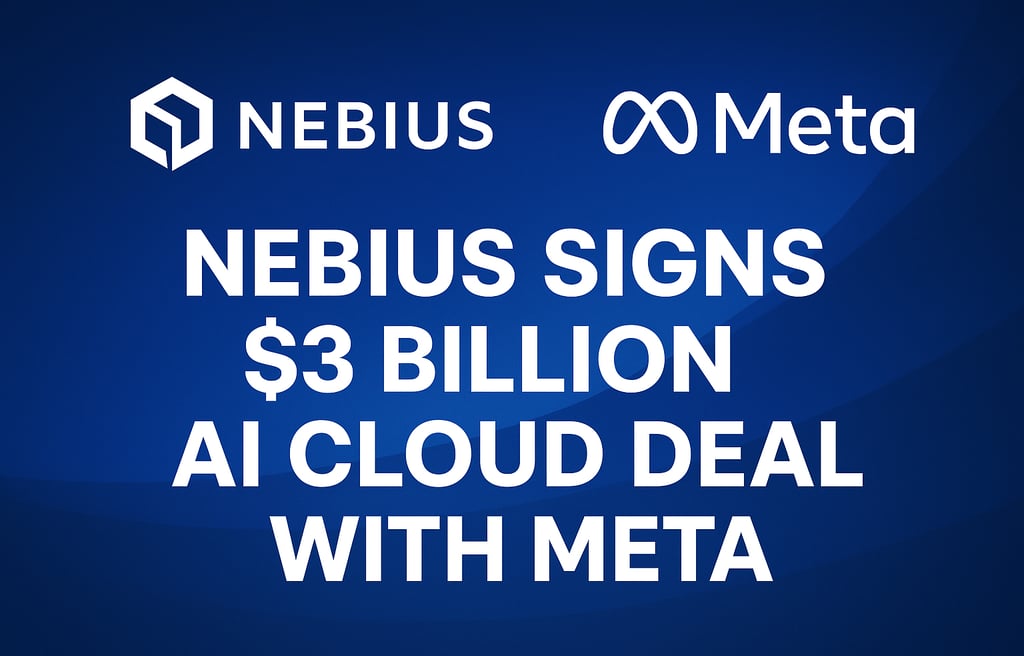Nebius Signs $3 Billion AI Cloud Deal with Meta | Global AI Infrastructure News 2025
Nebius partners with Meta in a $3B deal to provide AI cloud infrastructure. Strategic expansion fuels global AI computing growth.
Raja Awais Ali
11/11/20251 min read


Nebius Signs $3 Billion AI Cloud Deal with Meta, Expanding Global AI Infrastructure
AI infrastructure company Nebius Group has announced a landmark $3 billion, five-year agreement with Meta Platforms, under which Nebius will provide high-performance AI cloud computing services to support Meta’s large-scale model training and operations.
According to the company, the deal reflects soaring demand for next-generation cloud infrastructure optimized for generative AI and machine-learning workloads. Nebius said it will expand its AI cloud capacity, including GPU-based resources, to meet Meta’s growing compute requirements.
The announcement follows Nebius’ strong Q3 2025 results, where revenue surged four-fold year-over-year to reach approximately $146.1 million. The company’s capital expenditures also jumped to nearly $955.5 million, signaling major investments in scaling infrastructure and partnerships.
Nebius CEO Arkadi Volosh said,
“Our biggest bottleneck has been infrastructure capacity. With this deal, we’re scaling aggressively to meet rising global demand.”
This agreement positions Nebius among the leading providers of AI-focused cloud infrastructure, following its previous $17.4 billion deal with Microsoft earlier this year. Analysts say the Meta partnership places Nebius in direct competition with cloud giants Amazon Web Services and Google Cloud, especially in areas of advanced AI model training.
Nebius aims to achieve an annual revenue run rate of $7–9 billion by the end of 2026, driven by enterprise and hyperscaler demand for AI compute services.
Industry observers note that this partnership not only reinforces Meta’s AI ambitions but also strengthens Nebius’ standing as a global challenger in high-performance cloud computing.
In summary, the Meta–Nebius deal marks a major step forward in expanding AI infrastructure worldwide and underscores the escalating race among tech companies to secure powerful, efficient compute capacity for the next wave of artificial intelligence.
Stay informed with the latest national and international news.
© 2025. All rights reserved.